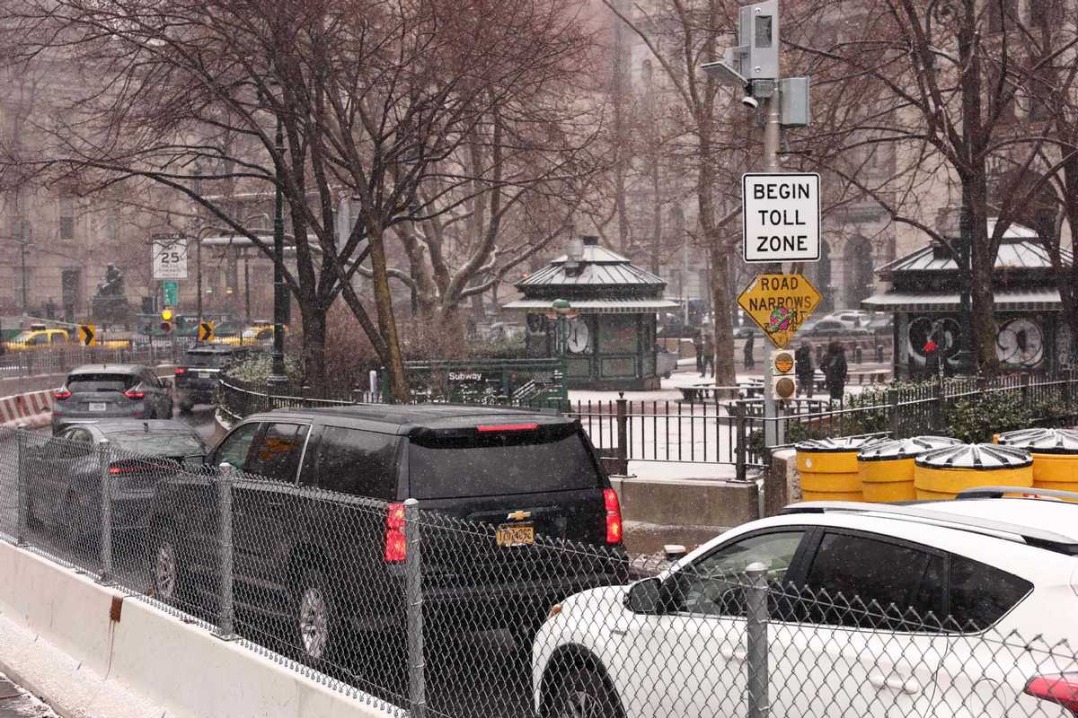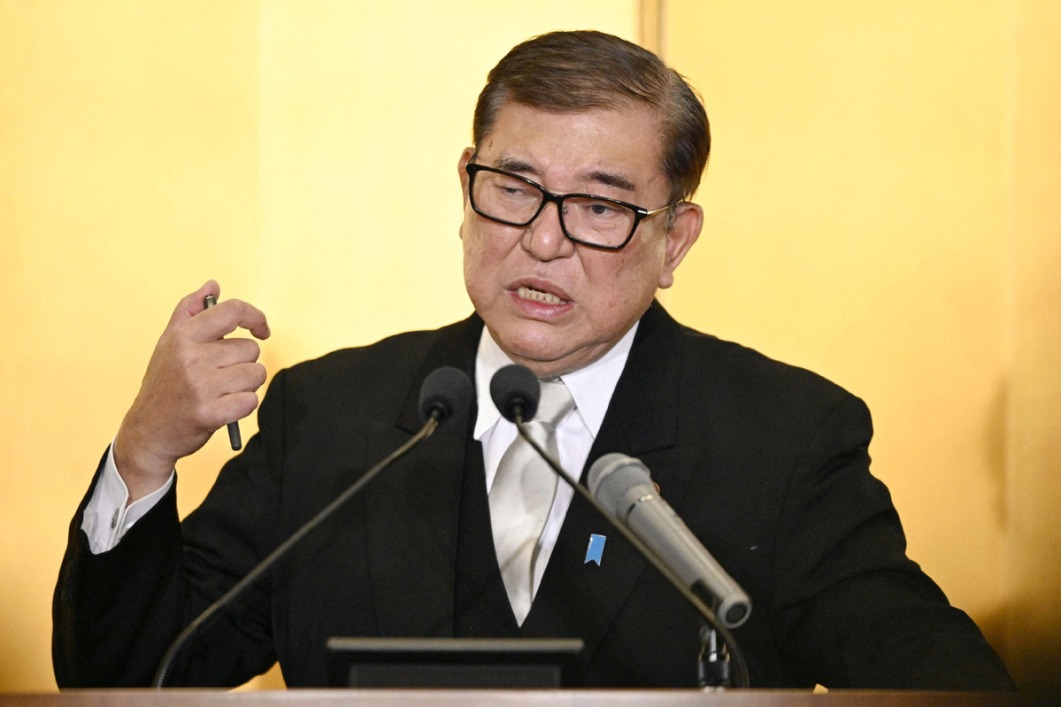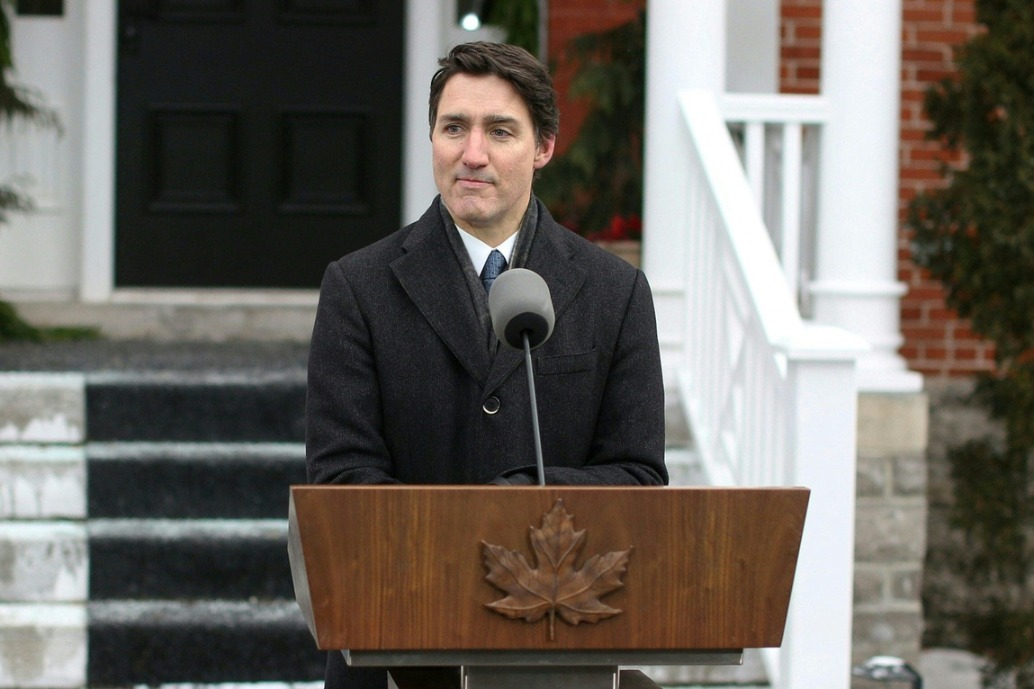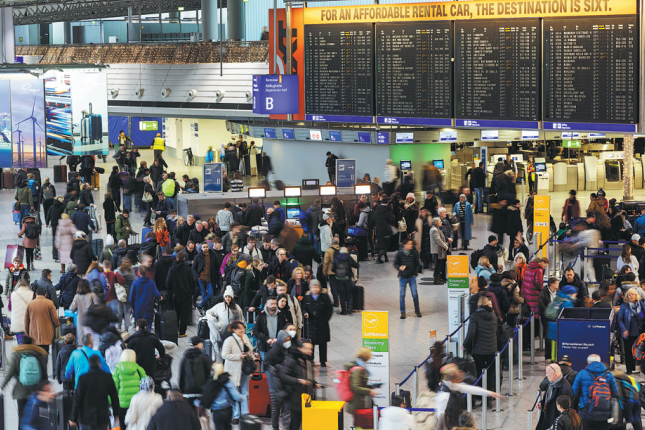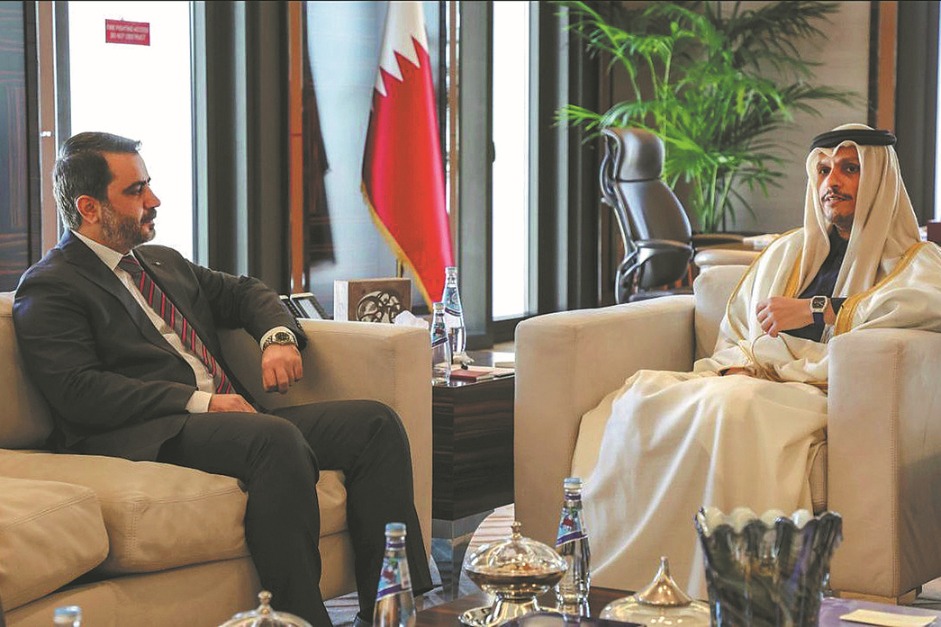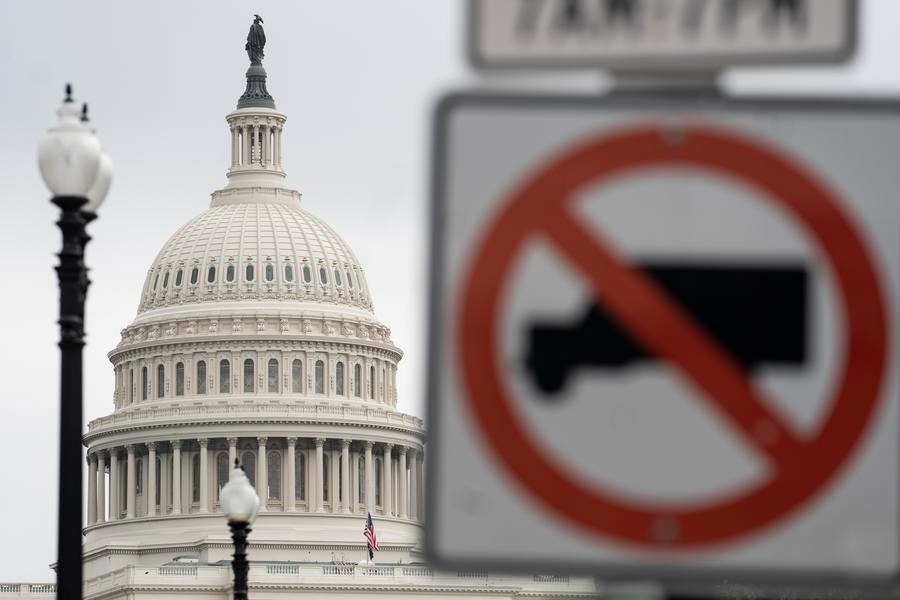Trump's steel tariff plan called disruptive

US President Donald Trump's announcement on Thursday of tariffs on imported steel and aluminum has sparked concerns about a potential trade war, a disruption of the global trading system and harm to the US economy.
Trump said he will sign measures next week for the United States to impose tariffs of 25 percent on steel imports and 10 percent on aluminum imports "for a long period of time".
"We're going to build our steel industry back and our aluminum industry back," he said.
Trump announced the tariffs during a hastily arranged meeting in the White House with steel and aluminum executives, and the timing of the announcement surprised Wall Street. The Dow Jones Industrial Average dropped 420 points, or 1.68 percent, with analysts saying investors fear retaliation by other countries and higher inflation.
The New York Times reported that Trump also said on Thursday that he did not want any nation to be exempted from the order.
Some US allies, including Canada, Japan and South Korea, are among the 10 biggest sources of steel for the US. China is the 11th biggest exporter to the US, accounting for 2 percent of US steel imports. And China is the third largest aluminum exporter to the US.
Canada and the European Union and others have already vowed to retaliate against the US tariffs, a decision based on an investigation under Section 232 of the US Trade Expansion Act of 1962 that found steel and aluminum imports pose a national security threat to the US.
Chinese Foreign Ministry spokeswoman Hua Chunying said in Beijing on Thursday that the US' "unreasonable and excessive" use of trade remedy measures will not help revitalize relevant industries at home, but rather, it will affect its employment and jeopardize the welfare of American consumers.
"China will take necessary measures to safeguard its legitimate rights and interests," she said.
The Ministry of Commerce made similar comment on Feb 17 following a US Commerce Department report of the Section 232 investigation.
Gary Hufbauer, a nonresident senior fellow at the Washington-based Peterson Institute for International Economics, said the tariffs were "a sad day for trade policy".
He said that Trump has decided to cite national security as the rationale for protecting US steel and aluminum industries with the tariffs, but that "foreign suppliers and US downstream users see the national security justification as baloney, just pure protection".
"The Trump administration may eventually grant exemptions to select foreign suppliers, possibly as a bargaining chip for their concessions on other issues. However, the EU and China, at least, will retaliate in the near future. They may invoke national security concerns as well," said Hufbauer, who served as deputy assistant secretary for international trade and investment policy of the US Treasury from 1977 to 1979.
Wayne Morrison, a specialist in Asia trade and finance at the Congressional Research Services, described the tariffs on national security ground as "unfortunate" and "opens up a Pandora's box".
He cited that US domestic industries facing foreign competition likely will make the same argument to seek protection, and the US downstream industries that use these products will suffer high costs and become less competitive.
"Industry and labor representatives in other countries might push for their own national security-related protectionist policies, which ultimately could hurt US exporters and reduce jobs," Morrison said.
Steve Suranovic of the Department of Economics at George Washington University said: "A trade war could develop that could begin to undermine many countries' faith in the liberalizing institutions like the WTO (World Trade Organization). If trust in the WTO system failed, the world could be heading to a repeat of the high tariff period of the Great Depression in the 1930s.
"My guess is that other countries would begin by filing a WTO dispute against the US. If that were to fail, and if protectionist US policies spread further, we might see a breakdown of the multilateral agreements and a resultant trade war. But this is likely down the road," Gene Grossman of the Department of Economics at Princeton University said in an email.
Charles Kane of the Sloan School of Management at the Massachusetts Institute of Technology said it's likely that American steel manufacturers will raise their own prices. Job increases will be minimal and "there will be job decreases down the supply chain where steel is being provided".
Grossman said that "tariffs on imported steel will raise the domestic price of all steel in the US, imported or not. Any industry that relies on steel as an input will see an increase in costs. The automobile industry is one example, the aircraft industry is another."
On Thursday, shares of Ford Motor Co fell 3 percent and General Motors Co declined by nearly 4 percent. Boeing, Caterpillar and other users of steel and aluminum also brought down the market, while steel producers US Steel and AK Steel posted big gains.
"We are not protectionists. We want a level playing field," said David Burritt, president and CEO of US Steel. "And when we get this right, it will be great for the United States of America."
Experts believed that US agricultural, airplane and auto exports could be the easy targets if China chooses to retaliate.
Many US lawmakers have described the tariffs as a tax on US consumers, just like the US tariffs on solar panels and machines announced in January.
Kansas Senator Pat Roberts, the Republican chairman of the Senate Agriculture Committee, on Thursday described Trump's announcement as "not going to go down well in farm country".
He expressed that he and other Republican senators received no formal heads-up from the White House before Trump said he would impose import tariffs.
"What's really ironic here — it's a real paradox of irony — that we have a tax reform package that's bringing a lot of benefits to the business community not the mention individuals, and this is a policy move that is contrary to that," Roberts was quoted by the newspaper Kansas City Star.
Paul Welitzkin in New York contributed to this story.
















